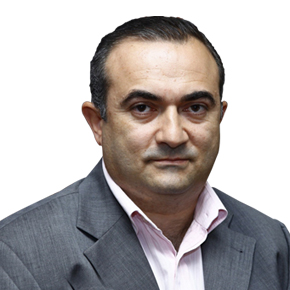It has already been two days that diplomats, experts and politicians worldwide learnt the real picture of the negotiations regarding the Nagorno Karabakh (NK) conflict, after the meeting in Kazan. Regardless of the attempts of the international media to equally hold Armenia and Azerbaijan responsible for the failure of the negotiations by following the ‘good old’ logic of keeping parity, expert communities no longer have any doubts that Azerbaijan is the one to fail the process of reaching any results. Indeed, when you meet to finalize a decision and all of a sudden are presented with ten new surprise suggestions, it is but clear that the one to come up with new recommendations is not serious. One may try to understand when one or two, even three new issues or approaches are brought to the table, but when the number is ten, it is clear that “it did not work this time as well”.
It is interesting to find out how the negotiation parties perceive the situation. The Armenian side returned home as a “constructive” one: weren’t the Azeris the guilty ones again? The US appeared to be “deceived”, to put it mildly: wasn’t Obama’s personal call to Aliev worth anything? France: the same story. What was really unprecedented was putting Russia’s, or rather Medvedev’s reputation to test. It is interesting to see what the US, France and Russia will undertake towards amending their shaken reputation. This is a totally different issue though.
In my analysis published two weeks ago, “The Symbolism of Kazan”, I noted that the success in Kazan is extremely important for the co-chairs of the Minsk Group, but now I would like to take another angle to elaborate on the future. One can make various predictions on what Obama or Sarkozy will do, but I think one thing can be anticipated with some degree of certainty: Karabakh will witness a new wave of democratization, and international support and assistance directed towards the development of the country, which subsequently will open the international doors for Artsakh. Perhaps the Armenian President’s address to the European institutions at Parliamentary Assembly of the Council of Europe (PACE) is the best foundation for this.
It is not excluded that American organizations will also start working directly with the NK government and society. Such a tendency was noticed in the past as well, when Azerbaijan would make promises and later breach those. It can be anticipated that this disrespect will not be digested easily: perhaps the Azerbaijani government will have to suffer the “consequences” of its irresponsible policies both on internal politics and Karabakhi platforms.
Naturally, such a response does not pursue humanitarian or democratization goals, but rather the interests of the superpowers. Belligerent statements or diplomatic maneuvers similar to those employed by Turkey with the purpose of delaying the ratification of the protocols signed with Armenia, will hardly be handy for Azerbaijan in this case.
What should Armenia do? I am certain that it should assist NKin its democratization efforts and development of human rights and fundamental freedoms, civil society and competitive market economy, as this is in compliance with its interests. These actions should be realized in close cooperation with European institutions and international development partners. The ongoing development projects in Armenia should be implemented in Nagorno Karabakh as well. One may only hope that Europe has really heard and will understand the Armenian President’s message, and each year will gradually realize its most important mission: support Armenia, NKR and the whole region in integration with the European family.
Tevan Poghosyan is the Executive Director of International Center for Human Development (ICHD). These views are his own.

















Comments
Dear visitors, You can place your opinion on the material using your Facebook account. Please, be polite and follow our simple rules: you are not allowed to make off - topic comments, place advertisements, use abusive and filthy language. The editorial staff reserves the right to moderate and delete comments in case of breach of the rules.